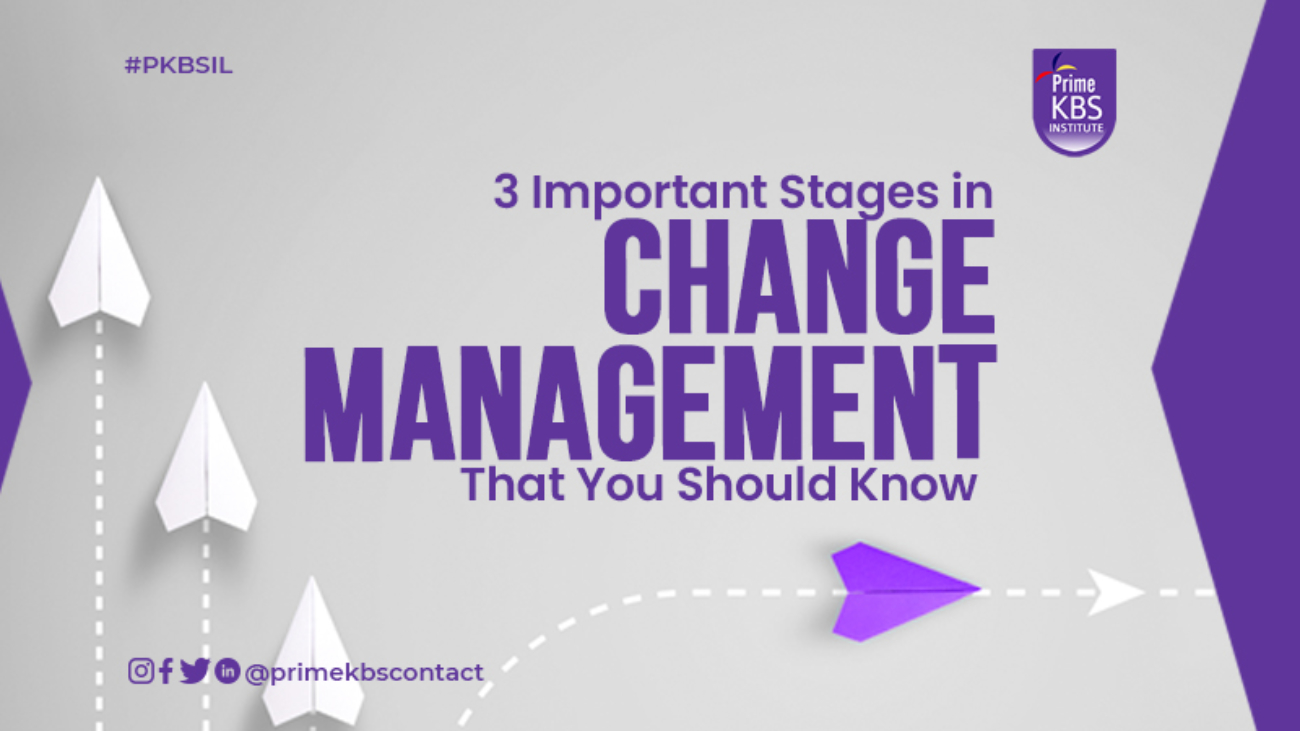Change Management
Change Management – Changes within organizations are inevitable, and these changes can have a significant influence on personnel. Employees handling change in the workplace, frequently experience a sense of helplessness, and are forced to accept the new way of operating.
The 3 stages in change management are;
- 1. Last Stage
Loss, anger, denial, uncertainty, and frustration are some of the normal feelings that come with learning about a change. When handling change at work, if you can’t move past this phase, it may affect both your performance and sense of personal wellbeing.
The following advice can help you get over “change’s concluding stage”:
Knowing why you feel how you do, will help you control your emotions. Some of them, like a failed change initiative in the past, might be true. Others may be unwarranted, such as the worry that you won’t be able to learn the new procedure before receiving any training.
Share Your Concerns: This is the moment to learn more about the change initiative, rather than holding your worries inside. Frequently, information can allay worries or, at the very least, give you a sense of empowerment.
Keep an Open Mind: When considering how to deal with change in the workplace, keep an open mind rather than making assumptions or visualizing the worst-case scenario. Think about some likely outcomes of the change in a favorable light.
- 2. Stage of Neutral Zone
Being in the “neutral zone” denotes getting past the first negative and resistant thoughts you had about how to handle change at work. You’ve given yourself permission to consider the potential, that the modification might enhance your productivity at work.
This period may bring a variety of feelings from all ends of the emotional spectrum. As the learning curve steepens, you could be eager to attend training for a new technique while also experiencing anxiety and perhaps fear.
Here are some pointers for moving past the neutral zone, and into a location with less uncertainty:
Ask questions: When we are uncertain about something, our imaginations frequently project the worst-case scenario. As you learn the new ways of doing things, ask questions along the way to ensure that you have the knowledge necessary to handle change in the workplace effectively.
Helping others is one approach to stop worrying about how a change will affect you. A colleague of yours may be experiencing similar worries. To make adjusting to change at work more enjoyable, offer to answer queries or to have a study session on the new procedure with coworkers.
Examine the Potential of the Change: If the change will have an influence on your day-to-day responsibilities, instead of a sense of helplessness, consider how you can implement the change in a way that satisfies your company’s demands, while also giving you some degree of control. Dealing with change in the workplace can be made more powerful by coming up with inventive ways to accommodate the transition.
- 3. Stage of New Beginnings
Once the change has gone into effect and you are now operating in the “new method,” you often enter the fresh beginnings stage. This can result in sentiments of relief and gladness that you’ve survived, but if there isn’t consistent support, you could still occasionally experience thoughts of bewilderment.
The following advice will help you completely embrace the new beginnings stage:
Ask for Help: One of the best practices for change management is to offer support so that a change can continue after the go-live date. Ask for assistance when needed handling change at work; don’t assume you have to deal with something that may have arisen after the change went into place.
Optimize and Explore: As soon as you’ve grown used to the new routine, spend some time thinking about and exploring ways to make your new workflow even more efficient.
Create Your New Habits: When new habits are formed to replace old ones, quitting old habits is much simpler. When adjusting to change at work, be deliberate about forming routines that will become second nature to you, by developing habits around the new workflows.
Sign up for our workshop today:
Contact Us: info@primekbsinsitute.org
Call: +2349169413405
www.primekbsinstitute.org


